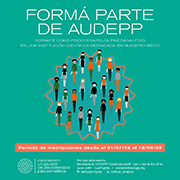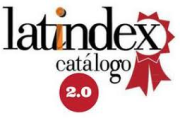THE ETHICAL TRAINING OF THE PSYCHOANALYST A FORMAÇÃO ÉTICA DO PSICANALISTA
DOI:
https://doi.org/10.53693/ERPPA/3.2.1%20Keywords:
training, ethics, transmission, institutionsAbstract
This paper deals with the ethical training of the psychoanalyst in regard to the role of transmission in psychoanalysis and the life of psychoanalytic institutions in this process. The metapsychological reformulations of Silvia Bleichmar are articulated, who views the construction of a psychotherapist as the construction of an ethical subject. The author contrasts the notion of an ethical subject to the idea of a disciplined subject and setting boundaries to construction of legalities. This paper establishes a differentiation between behaviors based on a normativity external to the subject and an intrinsic normativity, compatible with the ability to define, in the care of the other, the limits of violence itself.
Downloads
References
Allegue, R. (2007). La sexualidad femenina: de Freud a los estudios de género. En Asociación Uruguaya de Psicoterapia Psicoanalítica (ed.), Encuentro con la historia institucional (pp. 99-116). Psicolibros.
Bleichmar, S. (2009). La fundación de lo inconsciente. Destinos de pulsión, destinos del sujeto. Amorrortu.
Bleichmar, S. (2011). La construcción del sujeto ético. Paidós.
Bleichmar, S. (2014). Violencia social - violencia escolar: De la puesta de límites a la construcción de legalidades. Noveduc.
Bleichmar, S. (2016). Vergüenza, culpa, pudor: Relaciones entre la psicopatología, la ética y la sexualidad. Paidós.
Butler, J. (2006). Vida precaria: El poder del duelo y la violencia. Paidós.
FulcLCo, M. C. (2020). Transmisión y ética en psicoanálisis. Psicoanálisis, 42(1-2), 223-234.
Freud, S. (1937). Análisis Terminable e Interminable. Obras Completas, Tomo XXIII. Amorrortu.
Greenson, R. (1976). Lo que el psicoanálisis requiere del psicoanalista. En Técnica y práctica del psicoanálisis (pp. 343-348). Siglo XXI.
Hornstein, L. (2018). Escucha y práctica analítica. Revista Uruguaya de Psicoanálisis, 126, 106-121.
Levinas, E. (2001). Entre nosotros: Ensayos para pensar en otro. Pre-Textos.
Pomeraniec, N. (1999). Del pecado original al psicoanálisis: Un camino de transgresiones. Revista de la Asociación Escuela Argentina de Psicoterapia para Graduados, 25, 93-106.
Pomeraniec, N. (2006). De eso no se habla: Las condiciones personales del psicoterapeuta. Revista de Psicoterapia Psicoanalítica, 7(2), 9-21.
Ponce de León, E. (2018). La capacidad para la confidencialidad: Topología de la intimidad y la constitución psíquica. Revista Uruguaya de Psicoanálisis, 126, 49-60.
Rodulf o, R. (2020). Obsecuencia, obediencia, desobediencia y experiencia cultural. https://www.rodulfos.com/obsecuencia-obediencia-desobe-diencia/
Ulloa, F. (2012). Novela clínica psicoanalítica: Historial de una práctica. Libros del Zorzal.










